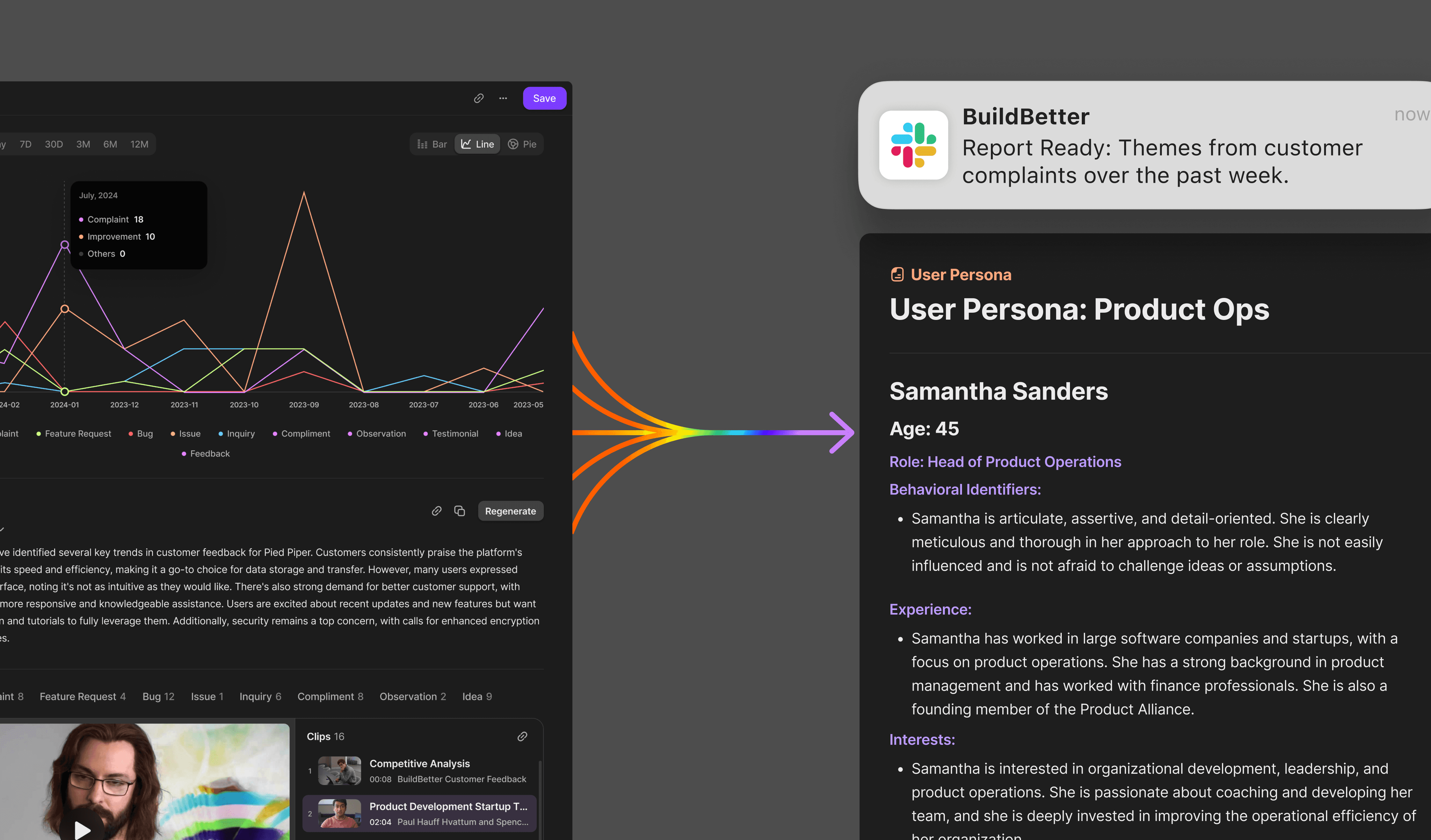BuildBetter.ai: Complete Buyer's Guide
AI-native feedback analysis platform specializing in product and sales call intelligence
BuildBetter.ai positions itself as an AI-native feedback analysis platform specializing in product and sales call intelligence, though its alignment with marketing use cases requires careful evaluation.
Market Position & Maturity
Market Standing
BuildBetter.ai operates as an emerging AI-native vendor in a market dominated by established enterprise leaders and specialized mid-market solutions.
Company Maturity
Company maturity indicators remain limited in publicly available research. The absence of documented funding status, revenue growth metrics, or customer growth trajectories creates uncertainty about BuildBetter.ai's operational scale and financial stability.
Industry Recognition
Industry recognition and validation appear minimal based on available research. The platform lacks documented awards, certifications, or third-party analyst recognition that typically validate vendor credibility in enterprise procurement processes.
Strategic Partnerships
Strategic partnerships and ecosystem positioning remain undocumented beyond basic integration capabilities with common business tools like Slack and Intercom [54].
Longevity Assessment
Longevity assessment presents concerns given the limited publicly available information about the vendor's business fundamentals.
Proof of Capabilities
Customer Evidence
BuildBetter.ai's capability evidence centers primarily on the Sonder case study, which documents 25% shorter meetings, 30% faster decisions, and 28% higher satisfaction [50].
Quantified Outcomes
Quantified performance claims include 90% reduction in operational time [51] and 80% reduction in feedback review time through auto-categorization [48][51].
Case Study Analysis
The Sonder case study documents measurable improvements in meeting efficiency and decision-making speed, though this represents a single implementation without methodology details or statistical significance testing [50].
AI Technology
BuildBetter.ai's technical architecture centers on four core AI capabilities designed specifically for call-based feedback analysis.
Architecture
The platform provides auto-recording and transcription for Zoom, Teams, and Webex [49][54], enabling comprehensive capture of customer interactions during product demonstrations and sales conversations.
Primary Competitors
BuildBetter.ai competes in a market dominated by established enterprise leaders like Medallia and Qualtrics [15][16] and emerging AI-native specialists targeting specific use cases.
Competitive Advantages
Primary competitive advantages include potentially faster deployment timelines compared to enterprise solutions requiring 6-9 months for implementation [26][35] and AI-native architecture optimized for call analysis scenarios.
Market Positioning
BuildBetter.ai's focus on product/sales scenarios positions it outside core requirements of AI Marketing & Advertising professionals [58][59], creating fundamental market segment misalignment that limits competitive effectiveness within the target buyer category.
Win/Loss Scenarios
Win/loss scenarios suggest BuildBetter.ai may succeed against competitors in product-focused organizations requiring specialized call analysis, particularly those seeking alternatives to complex enterprise implementations.
Key Features

Pros & Cons
Use Cases
Integrations
Featured In Articles
Comprehensive analysis of AI Feedback Tools for AI Marketing & Advertising for AI Marketing & Advertising professionals. Expert evaluation of features, pricing, and implementation.
How We Researched This Guide
About This Guide: This comprehensive analysis is based on extensive competitive intelligence and real-world implementation data from leading AI vendors. StayModern updates this guide quarterly to reflect market developments and vendor performance changes.
59+ verified sources per analysis including official documentation, customer reviews, analyst reports, and industry publications.
- • Vendor documentation & whitepapers
- • Customer testimonials & case studies
- • Third-party analyst assessments
- • Industry benchmarking reports
Standardized assessment framework across 8 key dimensions for objective comparison.
- • Technology capabilities & architecture
- • Market position & customer evidence
- • Implementation experience & support
- • Pricing value & competitive position
Research is refreshed every 90 days to capture market changes and new vendor capabilities.
- • New product releases & features
- • Market positioning changes
- • Customer feedback integration
- • Competitive landscape shifts
Every claim is source-linked with direct citations to original materials for verification.
- • Clickable citation links
- • Original source attribution
- • Date stamps for currency
- • Quality score validation
Analysis follows systematic research protocols with consistent evaluation frameworks.
- • Standardized assessment criteria
- • Multi-source verification process
- • Consistent evaluation methodology
- • Quality assurance protocols
Buyer-focused analysis with transparent methodology and factual accuracy commitment.
- • Objective comparative analysis
- • Transparent research methodology
- • Factual accuracy commitment
- • Continuous quality improvement
Quality Commitment: If you find any inaccuracies in our analysis on this page, please contact us at research@staymodern.ai. We're committed to maintaining the highest standards of research integrity and will investigate and correct any issues promptly.